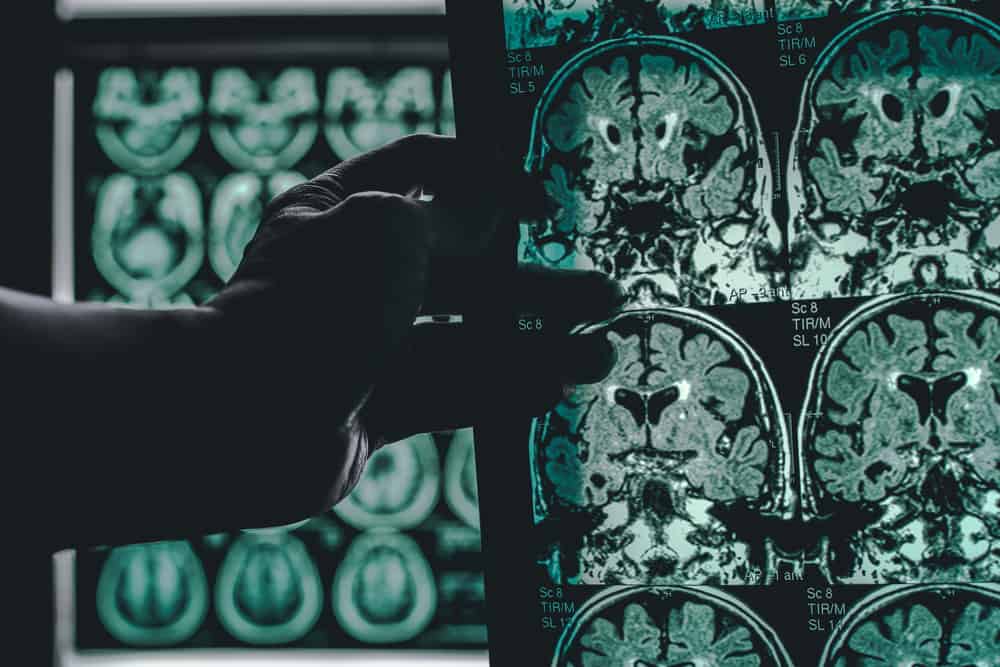Contents:
- Medical Video: Alzheimer's disease drug shows early promise
- Heart function affects the blood flow in the brain
- Coronary heart disease and Alzheimer's may be genetically interrelated
Medical Video: Alzheimer's disease drug shows early promise
Some studies have found a link between the effects of heart disease on Alzheimer's. In fact, these two diseases involve two different organs, namely the heart and brain. Then, what is the connection? Here are some studies that reveal the relationship between these two diseases.
Heart function affects the blood flow in the brain
Angela Jefferson, Director of Vanderbilt Memory & Alzheimer’s Center at Vanderbilt University Medical Center, said that people with Alzheimer's have changes in blood flow in the brain. The researchers found that people who were the subjects of research whose heart pumped less blood tended to experience significant problems with blood flow to the left and right temporal lobes of their brains. Please note that the left and right temporal lobes are the parts that play a role in memory.
The study, published in the journal Neurology, began with a project to collect data about the relationship between lifestyle, physical health problems, and problems in the aging brain. This study involved 300 people with an average age of 73 years. The research subjects were people who did not have severe heart or brain disease. They were asked to do an echocardiogram or heart ultrasound to measure the strength of their heart. In addition, they also underwent MRI scans to measure blood flow to the brain.
Researchers find facts, the effect of heart disease on a person is indicated by a decrease in heart power. For each one unit decrease in the heart index, which is the measure used by doctors to determine heart strength, as many as temp the left temporal lobe decreases the average blood flow associated with 15 years of aging.
Meanwhile, the right temporal lobe has decreased blood flow which is associated with 20 years of aging. The brain's ability to increase blood flow when needed also has a significant decrease. However, further research is still needed to conclude that heart problems are the only cause of this brain problem. Angela Jefferson said that a study cannot be summed up without other studies supporting the hypothesis.
Coronary heart disease and Alzheimer's may be genetically interrelated
Other studies say that Alzheimer's has a genetic relationship between coronary heart disease and Alzheimer's. Dr. Chauncey W. Crandall, head of the Cardiac Transplant Program at the Palm Beach Cardiovascular Clinic, New York, said that coronary heart disease and Alzheimer's have the same gene, called APOE-4.
This gene is responsible for giving the body an order to make a protein called apolipoprotein E which is combined with fat in the body to form a molecule called lipoprotein. Lipoproteins are responsible for carrying cholesterol and other fats into the bloodstream.
Apolipoprotein E is also a major component of specific types of lipoprotein called low-density lipoprotein (VLDLs), which affects the composition of cholesterol. Crandall said that people who have the APOE-4 gene have a higher risk of developing heart disease and Alzheimer's.
Health workers in Kentucky, United States, noted that the brains of people who die of heart disease tend to show plaque and tangles. Both of these are typical characteristics of Alzheimer's disease. The plaque itself refers to a collection of abnormal amyloid proteins that occur between nerve cells. Whereas what is meant by tangles this is the accumulation of different proteins called tau proteins in nerve cells.
This can be triggered by atherosclerosis. Atherosclerosis is a buildup of fatty plaques that narrows the coronary arteries of the heart, thus inhibiting the heart's ability to pump blood to other parts, including the brain. Even though about 20-25 percent of the blood pumped by the heart is transmitted to the brain. Therefore, if the blood supply to the brain decreases and decreases, it can cause brain damage and become an opening door for Alzheimer's disease.
The study found that oxygen-deficient brains activate genes responsible for producing dangerous beta amyloids. This process will trigger a series of other chemical reactions that can kill brain cells and cause Alzheimer's disease.
Therefore, it is important to maintain the health of your body as a whole. Do regular exercise and a healthy diet for better old-age health.














